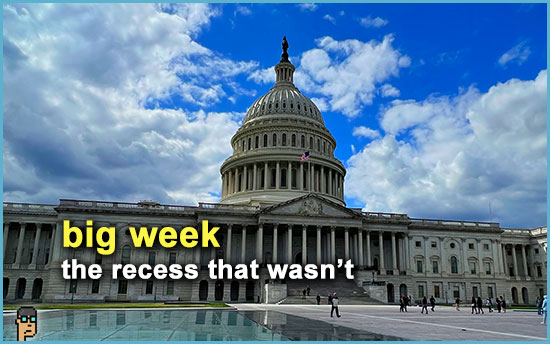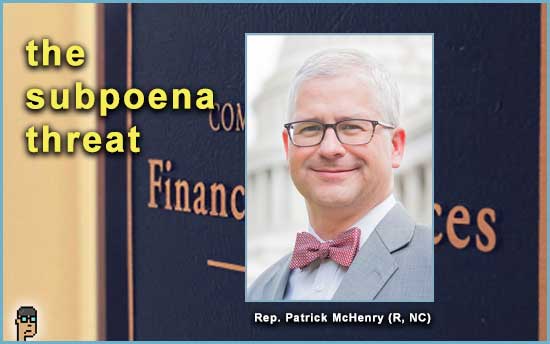legislation complication
CoinDesk’s Jesse Hamilton opines on the House speaker mess and its effect on digital assets legislation momentum. He observes a range of roadblocks from Rep. Patrick McHenry (R, NC) new role as temporary House Speaker to a looming government shutdown in mid-November. Hamilton concludes, “Because this is only the first year of the two-year congressional session, the end of the calendar isn’t a death sentence for any of the legislation. However, January starts a presidential election year when the political stakes increase on everything and the partisan fight gets bloodier, so moving legislation becomes more complicated.” Read more.
Will a new speaker appear by the end of the day today from the House Republican conference? And – could House Democrats play a role in selecting a speaker if Republicans are deadlocked for an extended period?
terrorist financing
The Wall Street Journal reported yesterday that terrorist organization Hamas has received $41 million in crypto funds between 2021 and June of this year – not to mention other terrorist organization which more than double the funding amount. Israeli police tell the WSJ that they “froze further crypto accounts used by Hamas to solicit donations on social networks, part of a continuing effort to locate the ‘financial infrastructure in cryptocurrencies used by terror entities to fund their activities.'”
For transactions, the article reports that the stablecoin Tether was the main way terrorists moved funds. Data was sourced from blockchain analytics firm Elliptic. Read more.
more tips:
Israel Police freezes Hamas crypto accounts on Binance – Calcalist








